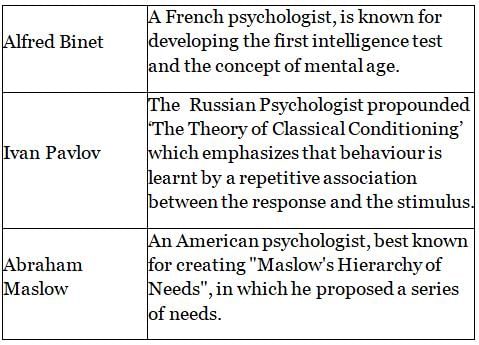REET Level 2 Mock Test - 6 (Social Science) - REET MCQ
30 Questions MCQ Test - REET Level 2 Mock Test - 6 (Social Science)
According to the theory of Bruner, which of the following statements is correct?
Which of the following is a true statement corresponding to Cephalocaudal Principle of Child's Development?
Which of the following psychologists is associated with ‘language development’?
What does the term 'PSRN' in development imply?
निर्देश: निम्नलिखित काव्यांश को ध्यानपूर्वक पढकर उनके नीचे दिये गये बहुविकल्पी प्रश्नों में सही विकल्प का चयन करें।
उभरी नसोंवाले हाथ
घिसे नाखूनों वाले हाथ
पीपल के पत्ते से नये-नये हाथ
जूही की डाल से खुशबूदार हाथ
गंदे कटे पिटे हाथ
जख्म से फटे हुये हाथ
खुशबु रचते हैं हाथ
खुशबु रचते हैं हाथ।
यहीं इस गली में बनती हैं
मुल्क की मशहूर अगरबत्तियाँ
इन्हीं गंदे मुहल्लों के गंदे लोग
बनाते है केवड़ा गुलाब खस और रातरानी
अगरबत्तियाँ
दुनिया की सारी गंदगी के बीच
दुनिया की सारी खुशबू
रचते रहते हैं हाथ
खुशबू रचते हैं हाथ।
Q. 'पीपल के पत्ते से हाथ' संकेत करते हैं:
एक अंग्रेजी शिक्षक रोहित अपने छात्रों के बोलने के कौशल का मूल्यांकन करने की योजना बना रहा है। बोलने के कौशल के मूल्यांकन के लिए निम्नलिखित में से किस पर मुख्य फोकस होना चाहिए?
प्राथमिक स्तर पर विद्यार्थियों के भाषा-शिक्षण के संदर्भ में कौन-सा कथन सही है?
एक शिक्षिका पाठ के संदर्भ में आये शब्दों जैसे- हंस - हँस, पूछ - पूँछ, चांद - चाँद का उच्चारण कराकर अंतर बताती है। शिक्षिका का अपेक्षित उद्देश्य है-
हिंदी भाषा शिक्षण का ग्रह्यात्मक उद्देश्य है-
पहली कक्षा की भाषा अध्यापिका अपने एक विद्यार्थी के भाषाई विकास के संबंध में चिंतित है, क्योंकि
'Teachers should consider a child's prospective learning power before trying to expand the child's grasp of language. 'These are the views of
Directions: Choose the appropriate word group for the underlined words in the given sentence.
My grandfather is 90 but he is as fit as a fiddle.
Which of the following is/are advantages of using multilingualism as a resource in classroom?
(i) Exposure to multiple languages at the same time.
(ii) Greater linguistic and cognitive flexibility
(iii) Restricted employment opportunities
(iv) Conflicts in classroom because of different culture
Ongoing and continuous formative evaluation can become meaningful only when
Which of the following psychologists is associated with ‘language development’?
Directions: Identify the antonym of the underlined word in the following sentence.
At school, the boy had erratic behaviour.
In which year was 'Consumer Protection Act' introduced to India?
The 2001 census found that _________ girls are less likely, than _________ girls, to complete primary school.
Children have little exposure to laws. Therefore, while discussing laws, it is important that teacher should
A Sanskrit Prashasti has been found in praise of which of the following Delhi Sultans?
In micro-teaching, the sequence of events is
The elevation of land is measured from the level of the sea because
Which one of the following is a new concept in Social Sciences?
The objectives of teaching the social sciences at the upper primary stage are:
A. To develop an understanding about the earth.
B. To initiate the learner into a study of her/ his own region, state, and country in the global context.
C. Planning a handbook with examples of activities.
Which is not related with the comprehensive objective of social science?
Directions: Answer the following question by selecting the most appropriate option.
Which of the following would you recommend for peer learning in your classroom?
Which of the following learning objectives can be included in the lesson plan designed to teach 'Diversity and Unity in India' at the level of Class VI?
















